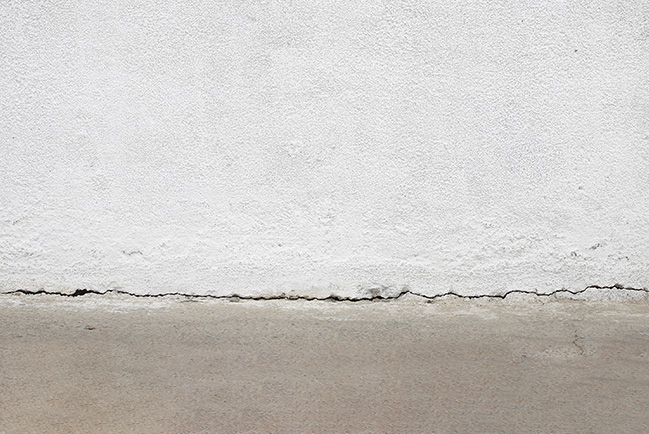
No homeowner ever wants to find out that they have a slab leak. This usually means that there are significant problems with the foundation of the house that are often costly to repair.
At HELP Plumbing, Heating, Cooling and Drains, we want to help our customers understand what causes a slab leak, how to identify one, and what options are available to repair it. If you suspect a slab leak in your home, give us a call right away at [site_info_phone_number]. We offer fast, same-day service and can answer any questions you may have about your plumbing system.
What Is a Slab Leak?
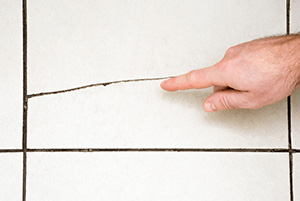
A slab leak describes a leak that develops in the water pipes (usually made of copper) beneath the concrete foundation of your home.
The slab in your home is usually the concrete floor of your basement on which the rest of your home is built. In most cases, the water lines are located beneath the slab, however, in some buildings, the water lines are embedded in the slab itself.
If neglected, slab leaks can cause serious problems, including wall and foundation cracks, high water bills, bad odors, low water pressure, uneven floors, and might even cause your house to shift and sink.
To help prevent slab leak damage, it’s important to schedule regular plumbing maintenance once a year.
What Causes Slab Leaks?
Poor installation
What often happens is that one of the pipes was dented, kinked, or bent during installation and over time, the water rushing through wears away at the dent and causes a small, pinhole leak.
External pressure
Another common cause of slab leaks is external pressure from things like earthquakes, soil erosion, and ground shifts. If the earth under your home moves for any reason, this can put excessive pressure on the pipes and cause leaks or a potential burst pipe. While pipes are built to withstand significant pressure, over time it can cause a leak, especially when combined with pre-damage or poor installation.
Corrosion
Corrosion and abrasion can also cause slab leaks. Hot water pipes are at a higher risk of abrasive forces since they expand and contract with the rise and fall of temperature. This pipe movement against the surrounding soil, rocks, and concrete can create leaks.
Abrasion
Water quality can affect the speed at which your pipes corrode. Excessive hardness (high mineral content) and excessive softness (low mineral content) can corrode pipes. The pH scale ranges from 0 – 14. Water with pH above 7 is considered alkaline while water below 7 is acidic. Usually water with a pH between 6.5 and 8.5 is not corrosive. It’s easy to test the pH of your water. Simply take a sample of your water and insert a pH test strip, usually found in the pool and spa section of your local home improvement store.
Time
Any extended periods of corrosion, abrasion, or pressure on your underground pipes can cause a slab leak. It’s important to keep an eye out for the common signs of slab leaks so you can prevent costly damage to your home and belongings. Make sure you schedule professional plumbing maintenance at least once a year to keep an eye out for any irregularities in your plumbing.
Reasons to Suspect a Slab Leak
There are many reasons to suspect a slab leak under your home. But how will your suspicion be aroused if you don’t know the common slab leak warning signs?
When it comes to plumbing leaks, the sooner they are addressed the better. Water leaks cause lasting damage if left undetected. Whether it’s the smell of mold and mildew from water under the carpets or audible cues like the constant sound of running water, if you suspect a leaking pipe, turn off the water supply (if you can) and call a professional plumber immediately.
Here are some of the common warning signs that you have a slab leak:
Higher than normal water bills
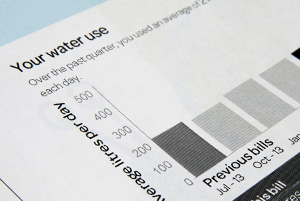
Unexplained spikes in the water bill are not only inconvenient for your monthly budget, they are also a sign that something is amiss. The only reason for you to be charged more money for water, if you’re sure you haven’t been using more than usual, is a water leak.
A slab leak will not just cause water to rise, but the bills as well. A higher bill is a sign to look for the cause, so follow the rest of these warning signs to see if any of them coincide with the rising costs. Call in a professional plumber to stop the water leak as soon as possible so the next month’s bill, and the potential damage of undetected leaks, don’t cost you an arm and a leg.
Damp spots on floor or carpet
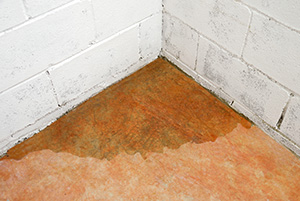
When water accumulates beneath your home, there is nowhere left for it to go but up. As the leak continues, it will eventually reach your home’s flooring, and visible signs of damage to your carpets or flooring are tell-tale signs that there is water below.
Visible or the smell of mold or mildew
If water from a slab leak has made its way to your flooring, mold and mildew is an inevitable consequence. If you weren’t able to notice damp or darkened carpet spots or warped hard flooring, the smell of mildew should tip you off that water damage is present. And, slab leaks can affect not just your flooring. Sometimes it can cause mold in your walls, too. If there’s a smell, investigate where it is coming from, and point out that area to a professional plumber when they come to assist in slab leak detection.
Spots of the floor are hot
Now, this may seem strange, but hot spots aren’t just a term for public internet access. It’s also a sign that the you have a underground hot water leak. Now this isn’t always the case, but hot water leaking will heat up the concrete and eventually the flooring above it. You may not even notice these hot spots yourself, maybe your pet will suddenly begin laying down on a random spot on the floor for the comfort of the warmth. Hot water leaks are costly and damaging. If you detect hot spots on your hard flooring, call a professional to fix the slab leak immediately.
Decreased water pressure
A decrease in water pressure is an obvious sign of a slab leak that you are sure to notice. It just is what it is — when water is escaping the pipes beneath the concrete foundation of your home, there will be less water when you turn on your faucet and water fixtures. Less water pressure is a sign of a slab leak, and your cue to call in a profession to get water back traveling to your fixtures as it should.
Hearing the sounds of constantly running water

If you are hearing the sound of water running nonstop, then your hot water heater is running nonstop. They go hand in hand. Your hot water heater will be trying to make up for the fact that water is leaking out of the pipes, so it will run and run and run to try and replace the water. An always running hot water heater is not only wasting energy and costing money, but it is also an audible and noticeable sign that there is a leak that needs to be addressed so the water heater can take a breather.
While none of these signs are proof that you have a slab leak, it’s a good idea to call a professional plumber to check it out. You want to treat a leaking pipe as soon as possible to prevent expensive damage down the line.
How to Test for a Plumbing Leak In Your Home
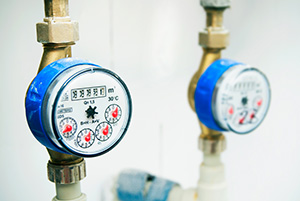
Ok, so you’ve investigated the warning signs and believe that indeed there is a slab leak. But, calling in a professional plumber for nothing seems like a waste. If you really want to double-check if you have a plumbing leak, there are a few steps you can take before you pick up the phone.
Follow this step-by-step process to test your home for hidden water leaks:
- First, make sure all the water fixtures and water-using appliances in your home are shut off. There should be not water running at all, including the irrigation system.
- Go outside and locate you water meter box. It’s usually located near the front curb of your home in a concrete box with an iron lid labeled “water meter.” Keep in mind that you may need a special meter box key to open it. Sometimes, all you need is a flathead screwdriver or two. In colder climates, the water meter may be located inside, usually in the basement.
- After removing the cover, take a look at the meter face. Most water meters have a blue or red triangle that rotates if there is water moving through the pipes. This is known as the leak detection dial or low-flow indicator. It may also look like a star or gear. If the leak detection dial is moving, you have a leak. Very small leaks, however, may not cause the leak indicator dial to move.
- If your leak detection dial isn’t moving or you don’t have one in your water meter, write down the number shown on the dial, wait 30 minutes (without using any water in the home), and check the meter number again. If the water meter records a higher number, this indicates that you have a hidden water leak.
While this won’t tell you if you have a slab leak, it will let you know if you have a leak somewhere. Your local HELP plumber can pinpoint and repair and hidden water leaks in your home. We’re a just a click or call away.
Slab Leak Options
Obviously, if you have a slab leak, you’re going to have to fix this problem. You can’t just hope it will go away.
Here are some professional options to address slab leaks:
Jackhammering
First, you can call a professional plumber in to jackhammer out the section of concrete that contains the pipe, cut out the leaking part and replace it. This is the route that many homeowners choose to go. But there is another option.
Rerouting plumbing pipes
You can also choose to reroute your entire water line around the slab which might be able to keep you from experiencing future slab leaks. This process involves cutting the water lines going into your slab and capping them. Our plumbers will then add a new water line that bypasses the slab entirely and delivers water all throughout your house. This way, if the new pipes start leaking you won’t experience any slab damage or foundation damage.
Fortunately, we can help you with detecting and repairing your slab leak. No matter what kind of plumbing repair you need, just call HELP.
Contact us at [site_info_phone_number] for all your plumbing and HVAC needs in Cincinnati or Northern Kentucky.
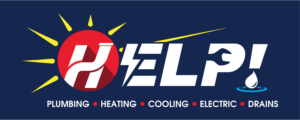
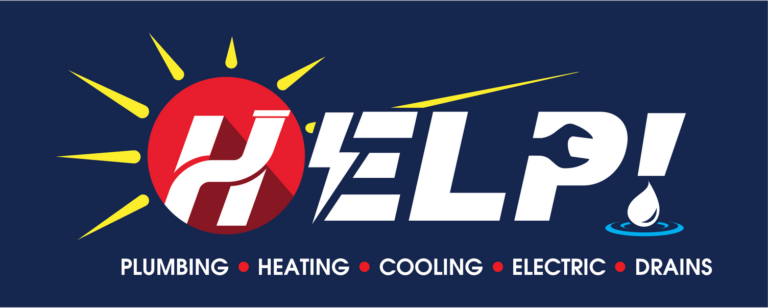
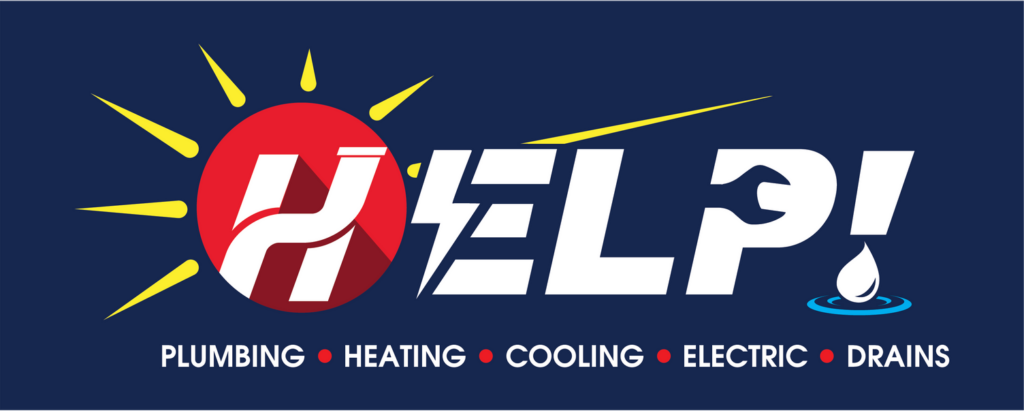
One Response